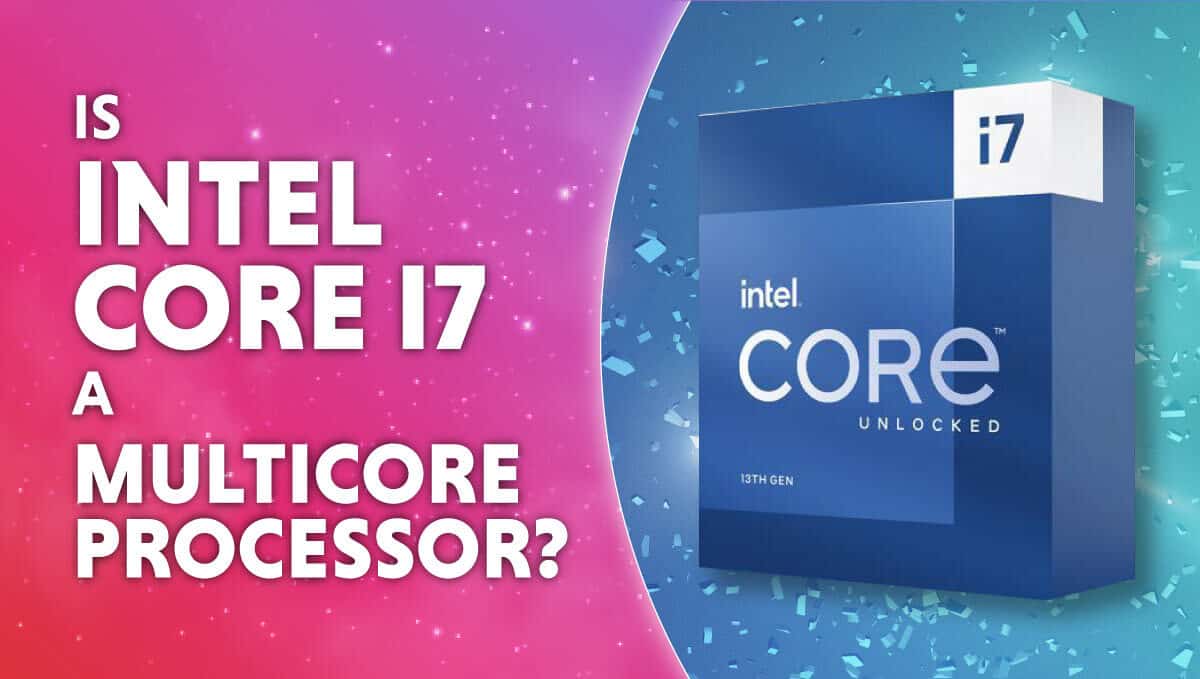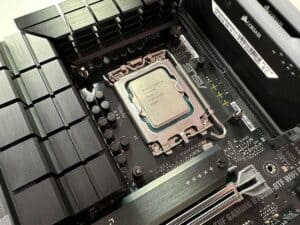Is Intel i7 a multicore processor?
Is Intel i7 a multicore processor? Let's find out.

WePC is reader-supported. When you buy through links on our site, we may earn an affiliate commission. Prices subject to change. Learn more
Core i7 refers to a family of high-end processors from Intel. These processors have well above-average specs and performance, but their price is also reflective of that. If you’re looking to pick one up for yourself, you may be wondering whether CPUs in the Core i7 family are considered multicore processors. Let’s find out. Is Intel i7 a multicore processor?
Now Read: Best CPU for gaming in 2024
What is a multicore processor?
Multicore processors are, as their name implies, processors that have multiple cores. What are cores, then? – you may wonder.
A single modern CPU chip has several individual processing units built into it. Each core can process instructions individually. The more a CPU has, the better, since the faster it will be, and the more tasks it will be able to handle at once.
Back when consumer-grade processors first made their way into the market, they used to have only a single core. Of course, as a result, they were very slow at multitasking and handling bulky workloads.
As times have gone by and technology has advanced, producers have been able to outfit their CPU chips with an ever-increasing number of cores and threads. Today, almost all processors are multicore processors.
Speaking of threads, they’re basically a virtual extension of cores. While a core is a physical processing unit located on a processor, a thread only exists in your computer’s software. Threads are also called logical processors.
Thanks to Intel’s Hyperthreading and AMD’s Multithreading technologies, a CPU core can serve two threads simultaneously, further increasing the processing capacity for every core in the processor.
How many cores and threads do Intel Core i7 processors have?
First of all, the Intel i7 is indeed a multicore processor lineup.
All Intel Core i7 CPUs, regardless of generation, model, and variant, are multicore processors – that is, they have at least 2 cores.
That said, the number of cores of Intel i7 processors has varied considerably with their generation. Naturally, the earliest generations released in the 2010s have fewer cores, whereas the latest ones have the most.
You should always take a look at your particular processor’s specifications to find out how many cores it has. It’s also worth finding out whether or not it features hyperthreading.
But – to give you a general idea, the 13th generation Core i7, the i7-13700K, has 16 cores and 24 threads.
8 of these are performance cores with hyperthreading enabled, and 8 of these are efficiency cores with no hyperthreading, hence the rather unusual core/thread configuration if you’re used to seeing thread counts be the exact double to core counts.
Core counts fall as you drop generations. For example, the 12th generation 12700K was a 12-core, 20-thread processor. The 11700K was an 8-core, 16-thread processor, and so on.
But even the earliest i7 CPUs, such as the 1st generation i7-610 launched in 2008, had a minimum of 2 cores.
Do I need a multicore processor?
Well, a multicore processor can be one that has anywhere from 2 cores all the way up to 64 cores (workstation and server processors).
You definitely can’t get by with a single-core processor in today’s modern era. It would struggle to do anything at all other than get you to your desktop screen, given how computationally demanding computer software has become.
The better question to ask is: how many cores and threads do you need in a processor?
The answer depends largely on the type of workload you intend to pursue.
If basic computer usage, browsing, and office work are the things you’ll be using your computer for, you can get by with a 2-core, 4-thread processor such as those you’ll very commonly find in laptops released in the early 2010s. Duo-core processors aren’t really available for desktops these days anymore, so I recommend going for a quad-core Core i3 or Ryzen 3.
If gaming is the intention, you can get by with 8 to 12 threads (4 to 6 cores). Having more is certainly nice, but it doesn’t yield noticeable performance gains. The most popular CPUs for this category belong to the Intel Core i5 and Ryzen 5 families.
However, Intel Core i7 CPUs make for excellent high-end gaming processors too, especially for enthusiasts willing to compromise somewhat on price efficiency and pay the extra to get improved raw performance and future-proofing.
If you need a workstation processor for bulky, CPU-intensive workloads such as content creation, video editing, 3D rendering, or any other workloads you know to be hard on the CPU, it’s ideal to have a processor with at least 8 cores and 16 threads. The more, the better.
Modern-day Core i7 processors are excellent options for this domain of work thanks to their numerous cores and threads, and they’re also more price-efficient options since they don’t cost as much as the much more expensive Core i9 and Ryzen 9 flagship-grade CPUs.
Final word: Is Intel i7 a multicore processor?
All intel i7 processors are indeed multicore. Even the oldest ones have a minimum of 2 cores, while the most recent one has an incredible 16 cores.
How many cores you need depends on your specific workload. Core i7s have an above-average core count for their generation, so they’re best suited for high-end gaming builds or productivity-focused workstations.





